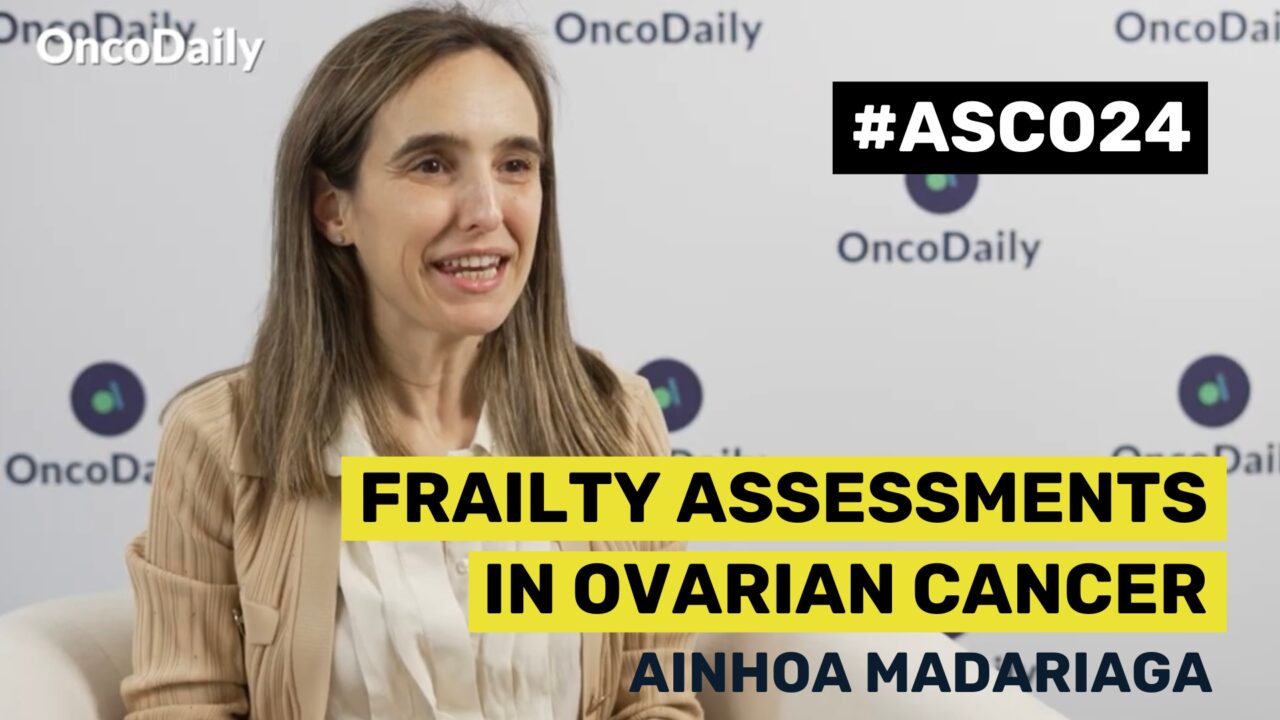The American Society of Clinical Oncology (ASCO) Annual Meeting is one of the largest and most prestigious conferences in the field of oncology. This year, the meeting took place from May 31 to June 4 in Chicago, Illinois. The event gathers oncologists, researchers, and healthcare professionals from around the world to discuss the latest advancements in cancer research, treatment, and patient care. Keynote sessions, research presentations, and panel discussions are typically part of the agenda, providing attendees with valuable insights into emerging trends and innovations in oncology.
This year, OncoDaily was at ASCO 2024 for the first time covering the meeting on-site. We had the pleasure of interviewing researchers who summarized the highlights of their work.
In this video, Dr. Ainhoa Madariaga, medical oncologist at Hospital 12 de Octubre, shared insights on ‘Systematic review of frailty assessment in ovarian cancer studies.‘
Hello, my name is Ainhoa Madariaga and I’m a medical oncologist working on gynecological cancers at 12 de Octubre University Hospital in Madrid, Spain. As part of ASCO 2024, I presented the results of a poster that assesses the impact and type of frailty assessments that are used in ovarian cancer studies. As part of the systematic review, we detected 48 studies implementing frailty assessments for ovarian cancer.
The type of studies were very variable, approximately half of them were assessing surgical aspects and the other half were assessing systemic therapy, which could be in the relapse setting or as an adjuvant treatment. We detected that in these studies implementing frailty assessments, the type of studies, the type of frailty assessment implemented were very variable, there was large heterogeneity and approximately 21 out of 48 studies used validated frailty assessments. As part of the systematic review, we also assessed which was the percentage of adherence to the ASCO vulnerability assessment guidelines and less than 15% of studies adhered to these guidelines.
However, besides this heterogeneity and the fact that most of these studies did not adhere to the ASCO vulnerability assessment guidelines, we saw that there was a very high correlation in those patients that were frail with worse outcomes. In 25 out of 26 studies that assess frailty as their primary outcome, we saw that frail patients did worse. So in summary, even though there is large heterogeneity and there is work to do to improve the frailty assessments in our clinical practice and studies, there is a high correlation between frailty and worse outcomes.
So this is something that we should probably be implementing in our clinical practice and look for prospective studies where we assess the best frailty assessment for patients with ovarian cancer.
More videos and content from ASCO 2024 on OncoDaily.


